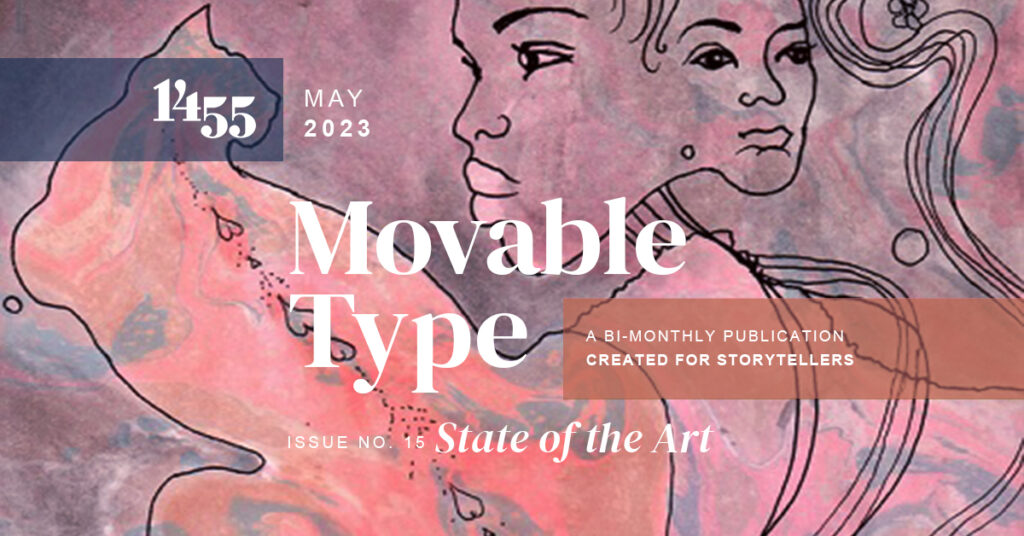
What are you going to do, teach?
This was the question. It’s what everyone asked, what everyone thought, how everyone assumed things worked: you get a degree in the Humanities and are equipped to do…what, exactly, in the real world?
Well, I didn’t teach.
And my journey, at once completely unique yet consistent with what countless other creatives have experienced, proves that there’s no safe or predictable path. At a certain point, the post-graduate with artistic aspirations needs to get extremely serious about two things: refining their craft and paying the bills. Thus, the beginning of what, for many of us, is a decades-long dance—putting in the work (to improve, to produce, to publish) while finding some form of employment, be it part or full time, during the day or at night, side hustles or detours.
A couple of outcomes I could not have anticipated: the realization of something approximating an artistic life took (much) longer than my most pessimistic assumptions, and the journey itself (including the setbacks, and the mostly reliable income that, ironically, ensured I was physically and mentally fit to keep writing) undoubtedly made me both a better storyteller and literary citizen. After several years learning about sales, communications, and human nature in the service industry, I found myself on the front lines of the dot.com revolution—spending an obscene amount of time inside spreadsheets, PowerPoint docs, contract negotiations and, eventually, budgets and marketing materials. With knowledge accrued along the way, I finally combined some personal smarts and professional savvy to become something of a technology analyst, focusing on the ever-evolving intersection of innovation and entertainment. (Some of these adventures also became fodder for my first novel, Not To Mention a Nice Life.)
Back in the pre-Internet days I wrote my master’s thesis on the Utopian Impulse in 20th Century Literature (no, you can’t read it). If I wrote a thesis about my time in the so-called real world, it might detail how the democratization of content in the 21st Century has impacted everyone from artists to audiences, agents to editors, business owners to publicists. During these years, as an analog world succumbed to digital inevitability, I did a great deal of freelance writing (emphasis on free). I learned it’s impossible to understand art without at least acknowledging political and technological trends, and how these factors impact both the creation and reception (and, of course, legacy) of works that endure. (Many of these pieces, published in a variety of places, are cross posted on my blog, which has been active since the early 2000s). Info-overload is the new normal, but we also have less gatekeepers, and content is exploding—often on the margins, but as always, that’s where the truly interesting stuff happens.
Altogether, this miscellany of acquired skills and insuppressible passions gave me the confidence to establish a 501 (c) (3) non-profit arts organization. Toni Morrison said, “If there’s a book that you want to read, but it hasn’t been written yet, then you must write it.” Where necessary and possible, it’s also incumbent on us to create the literary world we wish to inhabit. 1455 exists, simply and transparently, to lift up creative voices and establish a diverse, inclusive community. I’m increasingly part of the so-called literary establishment, but I’m also helping publish new writers and shining a light on storytelling via free programming—all things 1455 does, for free, all day and every day.
This is all a somewhat long-winded and self-indulgent way to suggest the State of the Art, right now, is a sum total of every individual story. Taken together, common themes emerge. We can learn from mistakes made (by ourselves, by others), while emulating those who succeed, often by ignoring tastemakers and tired conventions. Each artist must tread their own path, because anything worth doing must be original, reflecting a style born out of what one sees, hears, feels, wants, loves, loathes, dreams.
Our duty, as individual creatives and fans, is to tell our stories, listen to other’s stories, and do whatever we can to generate awareness and enthusiasm. One thing I’m certain of, after a lifetime of learning, failing, and falling, is the belief—no matter what the cynical or soulless insist—that art matters. What art provides is the reason we toil, struggle, and refuse to surrender. Art is what redeems the occasional silence and solitude. As ever, for those keeping the faith and staying true to their vision: the deeper drive is to connect, to put something unique into the world and see how it lands. Can a connection be established? Can a dialogue be initiated? Can a debate begin? Can our world be saved, one exchange at a time?
*This essay appears in the most recent issue of 1455’s e-zine Movable Type.
